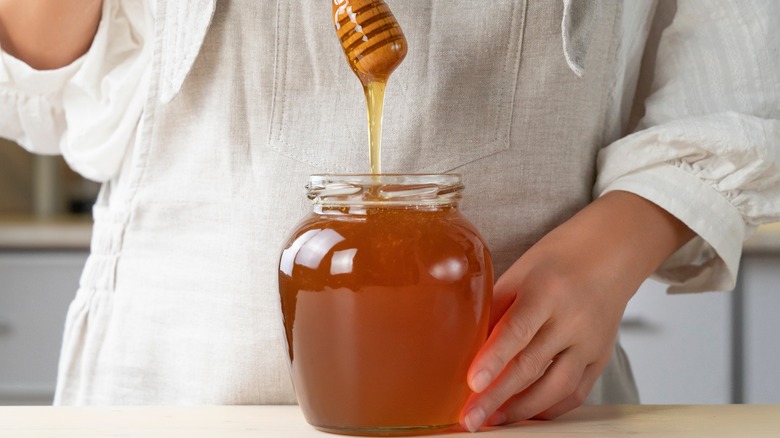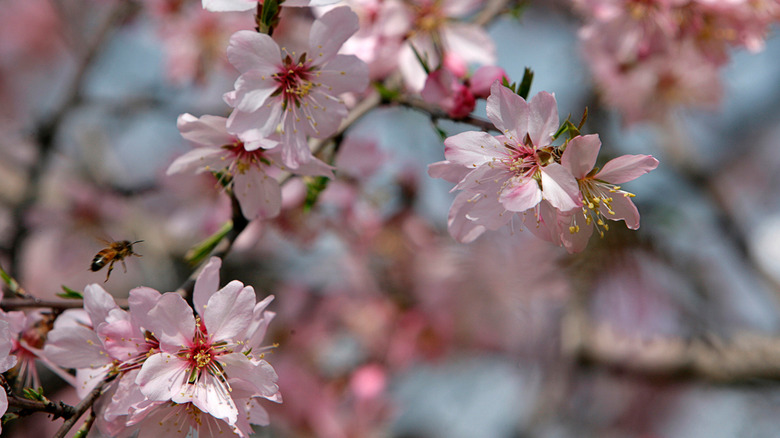Why You'll Probably Never Find Almond Honey At A Grocery Store
A trip to your local supermarket will probably present you with at least one shelf full of honey options. There's dandelion honey, clover honey, and tupelo honey. There's honey packed in plastic bottles shaped like bears. (For some reason.) There are even more exotic varieties, like the unique Melipona honey from the Yucatán. Today, we're talking about another unique type of honey that perhaps you've never heard of: Almond honey.
Per Healthy With Honey, almond honey is a type of wild honey that only exists because the fragrant flowers of the almond tree are sometimes alluring to honeybees, which pollinate the flowers and produce nectar. It's speculated that almond flowers might be a last-resort food source for honeybees in search of a food source during seasons of dormancy. Why are these flowers so low on honeybees' lists? Almond flowers contain a naturally-occurring toxin called "amygdalin," which is not only unpleasant to bees but can even be fatal to them in high enough dosages. In fact, cyanide is derived from amygdalin (per The Salt). But, believe it or not, its limited production isn't even the main reason why you'll probably never find almond honey at the grocery store.
Don't let the pretty name fool you
It turns out that, despite its appealing name, almond honey actually tastes pretty bad. According to Healthy With Honey, almond honey isn't even intended for humans to eat at all. It comes from the nectar of almond flowers — the same plants that produce almonds. But make no mistake, that's about all that almond honey has in common with actual almonds. Per the outlet, almond honey is infamous for a characteristically strong aftertaste, which some palettes consider "nutty" and others reportedly call "bitter and nasty." It also has substantially lower glucose levels than regular honey, meaning it's hardly sweet at all.
Still, some consumers might opt for almond honey for its array of health benefits. Per GeoHoney, its lower sugar content makes almond honey a better fit for people with diabetes. Almond honey also carries some of the health benefits of almonds, including nutrients iron, zinc, and vitamin B, which all support immune system health and help with iron deficiency. It also curbs appetite, which can aid in weight loss, and its anti-inflammatory properties can improve the skin's physical appearance. Plus, almond honey may even be a little more cost-effective than other honey options on the market. Almond honey sells for $18 per pound via online honey purveyor Bee Folks. (Although, it's cheaper if you buy it in bulk.) For comparison, at a Whole Foods Market in Brooklyn, N.Y., an 8.8-ounce jar of Raw Manuka Honey from New Zealand runs $27.99.

